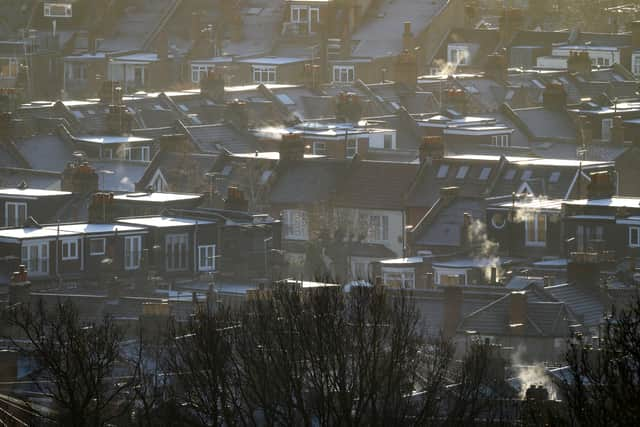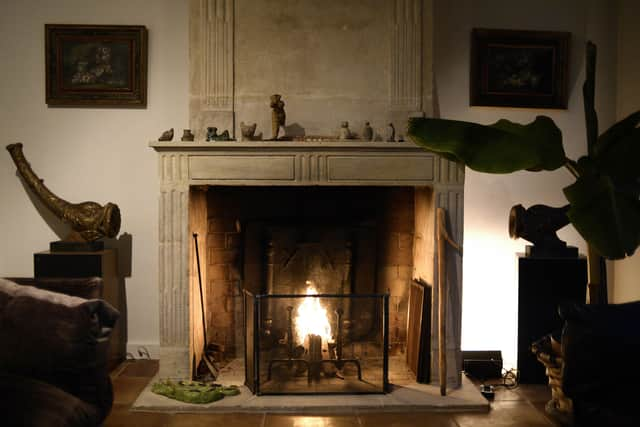New log burner rules in England could lead to £300 fines - what are the new rules, how do they affect homes?
and live on Freeview channel 276
As the Ofgem energy price regulations have seen energy bills double since last year, many have turned to the use of log burners as an alternative energy source in their homes. But with new rules introduced by the government, households in England using their log burners incorrectly could face a £300 fine and even a criminal record.
The new rules are part of the new 25-year environmental plan laid out by the government in order to leave "the environment in a better state than we found it", by reducing pollution in “smoke control areas” in English cities and towns.
Advertisement
Hide AdAdvertisement
Hide AdApproximately 1.5 million homes in the UK have a log burner, and around 150,000 are sold every year. But in recent years, the Department for Environment, Food and Rural Affairs (DEFRA) have cracked down on the use of log burners and coal fires as they stand for the largest part of the country’s fine particulate matter emissions (PM2.5), small particles of soot that can enter our lungs and cause health problems in humans.
According to the government, domestic stoves account for 38% of PM2.5 emissions, and the new rules will see towns and cities in “smoke control areas” allowed to emit three grams of smoke per hour instead of the current 5 grams. Breaking the new rules can land homeowners a £300 fine on the spot and can lead to criminal prosecution if their chimney smoke isn’t reduced in accordance with regulations.
What are smoke control areas?
Smoke control areas are areas where certain rules are in place regulating how much smoke chimneys are allowed to release. In these areas, households are only allowed to burn authorised fuel, unless you use an “exempt appliance”. Exempt appliances include anthracite, semi-anthracite, gas or low volatile steam coal.
In England, breaking the rules within a smoke control area can lead to a £300 fine from your local council should they decide your chimney produces too much smoke. Burning unauthorised fuel can land households a fine of up to £1000.
Advertisement
Hide AdAdvertisement
Hide AdTo find out if you live in a smoke control area, contact your local council. A full list of authorised fuels in England, Wales, Scotland and Northern Ireland can be found on the DEFRA website.


Will there be a ban on log burners?
In the 262 page plan, announced by environmental secretary Therese Coffey, the government states there are no plans to ban log burners altogether. The plan states: “We are not considering a ban on domestic burning in England.
“The UK government recognises that some households are reliant on solid fuel burning as a primary source for heating, hot water and cooking, with this in mind the government is not seeking to ban burning. A ban on domestic outdoor burning (bonfires, barbecues, firepits etc.) would also be considered disproportionate.”


The new rules have faced some backlash from local councils, who say they don’t have the funds or resources to enforce the stricter limits. This despite agreeing that log burners are harmful in urban areas.
Advertisement
Hide AdAdvertisement
Hide AdCouncillor David Renard, of the Local Government Association, told the Guardian: “Councils are happy to take on these responsibilities, but we need funding to resource them properly. Councils have very limited resources, with so much going on social care. Balancing these priorities is a real problem.”
He added: “It’s important that people are given clear messaging about the health hazards to households and the neighbourhood. The government needs to work with a wide range of partners to take the action that removes the sources of air pollution everywhere, so that all communities have the benefits of clean air.”
Comment Guidelines
National World encourages reader discussion on our stories. User feedback, insights and back-and-forth exchanges add a rich layer of context to reporting. Please review our Community Guidelines before commenting.
